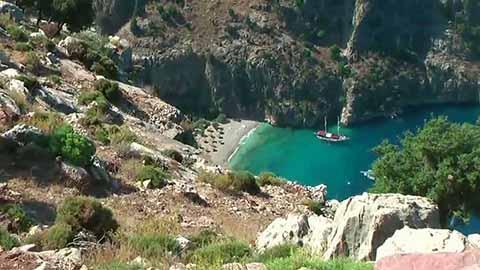
Lesbos lies in the embrace of a special atmosphere. More than 2600 years ago the Greek poet Sappho lived on this island. She was glorified as the only female poet in ancient times. Plato himself spoke of her as "the tenth muse". It is questionable whether Sappho came from Mytilene or Eressos, but it is known that she came from a noble family and received an exclusive education. Sappho established a school called "House of the Muses" that taught young girls poetry, music and dance. This way of life was in contrast with the male world and the art of war and was received with reservations and even hatred by others.

The romantic preferences of the poet towards representatives of the fair sex are just guesses. One legend tells of her unrequited love for the beautiful boatman Phaon, who was the reason why Sappho put an end to her life by throwing herself off the Cliff of Leukas. The works of Sappho that are left nowadays are only fragments of poems. Only one poem was preserved in its entirety - "Hymn to Aphrodite." The islands in the northeastern part of the basin, unlike other Aegean islands, do not form an archipelago. The smaller ones such as Samos and the larger ones such as Lesbos, charm you with their beauty. The endless olive plantations, pine groves and rocks with bizarre shapes provide fascinating landscapes on the island of Lesbos. The beach is mostly covered with cliffs, while the coast itself is rocky. In the paleontological park and on the coast of the Aegean Sea you can see petrified giant cedars that resemble the giant sequoias in California. These fossils were formed after a volcanic eruption under the influence of boiling sea water and lava.